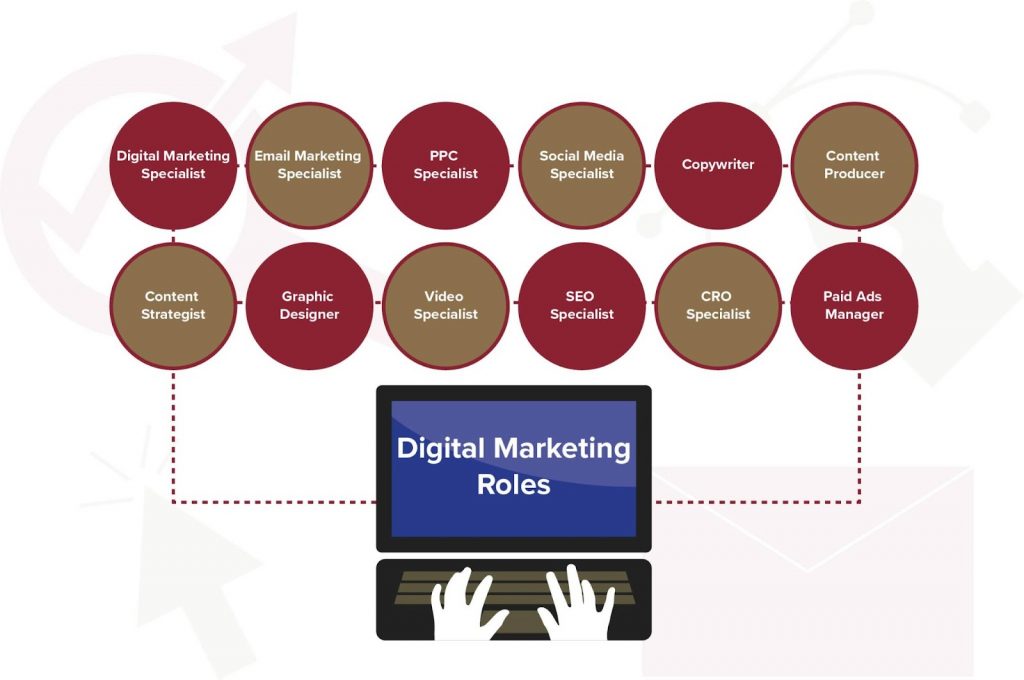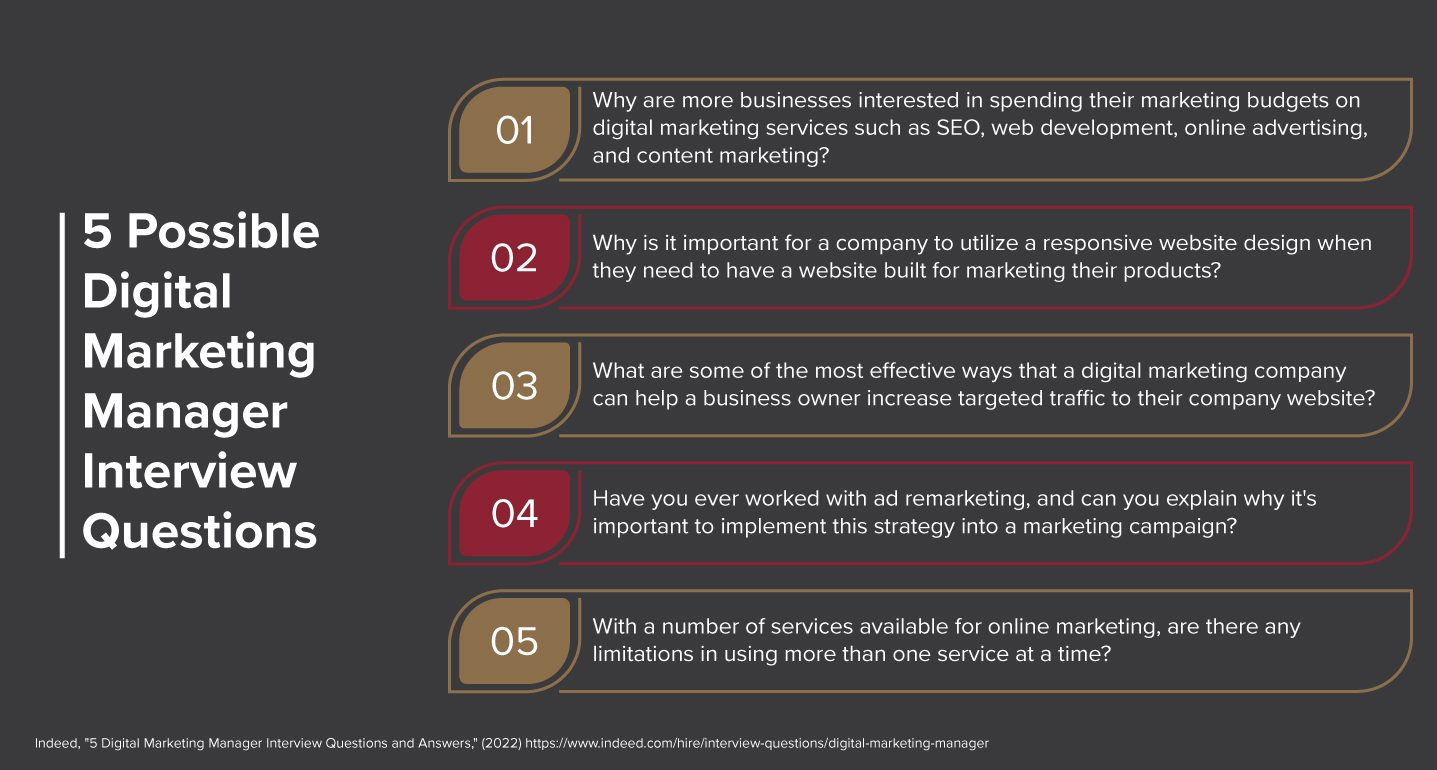3. Explore Digital Marketing Roles
Gaining experience in one or more digital marketing positions can prepare you to become a manager. Entry-level digital marketing roles are available in content production, social media, email marketing, and other fields, and can help you further your understanding of the broader role of digital marketing for an organization. Look for job titles that contain the word “specialist,” as this often indicates entry-level positions.
One such job is digital marketing specialist. This is a broad description for someone who operates social media accounts, writes email newsletters or sponsored content, and manages paid ads. This role serves as a good base for someone breaking into digital marketing.
Similar jobs carry more specific titles, such as email marketing specialist, PPC specialist, or social media specialist. Professionals in these roles often work as part of larger marketing teams. Take advantage of these opportunities by learning to connect with customers and generate new business.
Writers can begin their careers as copywriters or content producers, who might also be responsible for audio and video content. Content strategists not only write copy but also tap the market for new customers.
As noted above, visual content is booming. Graphic designers produce the visuals that populate social media, whereas video specialists can build content for just about any organization. Retailers, healthcare providers, real estate agencies, and travel companies all understand the value of video.
If you lean toward the technical end of digital marketing, look for roles such as SEO optimizer, CRO specialist, or paid ads manager. These will require proficiency with SEO and PPC platforms, along with some basic HTML skills.


 Live Chat
Live Chat


